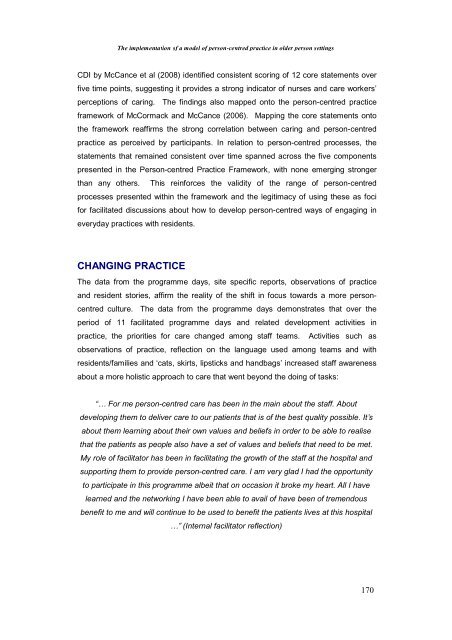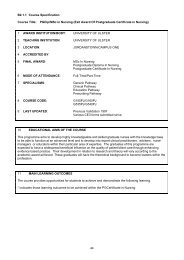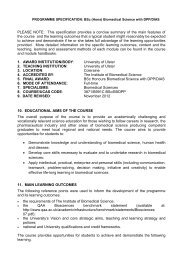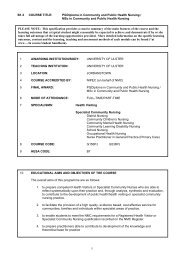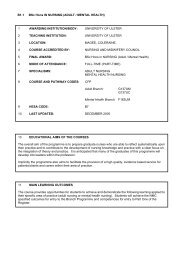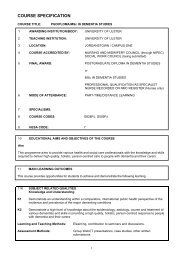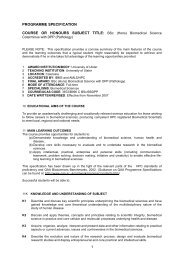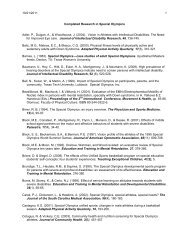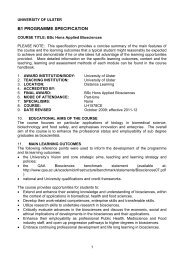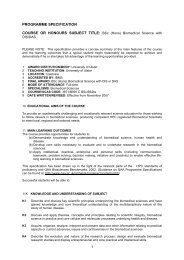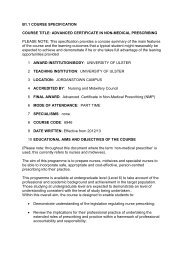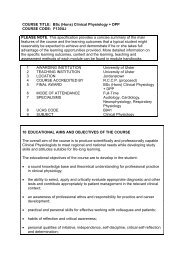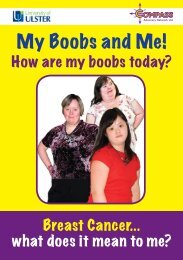The Implementation of a Model of Person-Centred Practice In Older ...
The Implementation of a Model of Person-Centred Practice In Older ...
The Implementation of a Model of Person-Centred Practice In Older ...
Create successful ePaper yourself
Turn your PDF publications into a flip-book with our unique Google optimized e-Paper software.
<strong>The</strong> implementation <strong>of</strong> a model <strong>of</strong> person-centred practice in older person settings<br />
CDI by McCance et al (2008) identified consistent scoring <strong>of</strong> 12 core statements over<br />
five time points, suggesting it provides a strong indicator <strong>of</strong> nurses and care workers’<br />
perceptions <strong>of</strong> caring. <strong>The</strong> findings also mapped onto the person-centred practice<br />
framework <strong>of</strong> McCormack and McCance (2006). Mapping the core statements onto<br />
the framework reaffirms the strong correlation between caring and person-centred<br />
practice as perceived by participants. <strong>In</strong> relation to person-centred processes, the<br />
statements that remained consistent over time spanned across the five components<br />
presented in the <strong>Person</strong>-centred <strong>Practice</strong> Framework, with none emerging stronger<br />
than any others. This reinforces the validity <strong>of</strong> the range <strong>of</strong> person-centred<br />
processes presented within the framework and the legitimacy <strong>of</strong> using these as foci<br />
for facilitated discussions about how to develop person-centred ways <strong>of</strong> engaging in<br />
everyday practices with residents.<br />
CHANGING PRACTICE<br />
<strong>The</strong> data from the programme days, site specific reports, observations <strong>of</strong> practice<br />
and resident stories, affirm the reality <strong>of</strong> the shift in focus towards a more personcentred<br />
culture. <strong>The</strong> data from the programme days demonstrates that over the<br />
period <strong>of</strong> 11 facilitated programme days and related development activities in<br />
practice, the priorities for care changed among staff teams. Activities such as<br />
observations <strong>of</strong> practice, reflection on the language used among teams and with<br />
residents/families and ‘cats, skirts, lipsticks and handbags’ increased staff awareness<br />
about a more holistic approach to care that went beyond the doing <strong>of</strong> tasks:<br />
“… For me person-centred care has been in the main about the staff. About<br />
developing them to deliver care to our patients that is <strong>of</strong> the best quality possible. It’s<br />
about them learning about their own values and beliefs in order to be able to realise<br />
that the patients as people also have a set <strong>of</strong> values and beliefs that need to be met.<br />
My role <strong>of</strong> facilitator has been in facilitating the growth <strong>of</strong> the staff at the hospital and<br />
supporting them to provide person-centred care. I am very glad I had the opportunity<br />
to participate in this programme albeit that on occasion it broke my heart. All I have<br />
learned and the networking I have been able to avail <strong>of</strong> have been <strong>of</strong> tremendous<br />
benefit to me and will continue to be used to benefit the patients lives at this hospital<br />
…” (<strong>In</strong>ternal facilitator reflection)<br />
170


